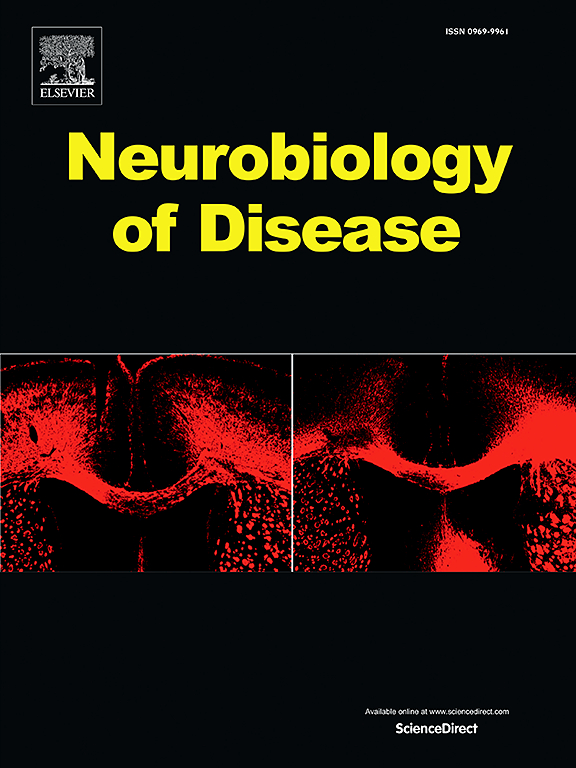Intermittent fasting produces antidepressant-like effects by modulating dopamine D1 receptors in the medial prefrontal cortex
IF 5.1
2区 医学
Q1 NEUROSCIENCES
引用次数: 0
Abstract
Nutritional psychiatry has gained increasing attention, particularly in exploring dietary interventions for depression treatment. As a potential non-drug intervention, intermittent fasting (IF) has gradually attracted the interest of researchers, but its specific neurobiological mechanisms in depression remain unclear. The medial prefrontal cortex (mPFC) dopamine D1 receptors (Drd1) are significant in stress response and serve as a molecular target for rapid-acting antidepressants. Our previous study indicated that 9-h fasting produces an antidepressant-like effect by modulating dopamine (DA) receptors. However, whether IF produces antidepressant-like effects through actions on DA receptor-mediated mechanisms remains unclear. Here, we investigated the effects of IF on improving depression-like behavior induced by Chronic Unpredictable Mild Stress (CUMS) in mice and explored whether these effects are regulated by Drd1. We found that IF alleviated CUMS-induced depression-like behavior, increased c-Fos expression in the mPFC and hippocampus of CUMS mice, and activated the Drd1-cAMP-PKA-DARPP-32-CREB-BDNF signaling pathway. The antidepressant-like effects of IF were reversed by the Drd1 antagonist SCH23390. Additionally, optogenetic activation of Drd1-expressing neurons in the mPFC improved CUMS-induced depression-like behavior, while optogenetic inhibition suppressed the IF-induced antidepressant-like effects. These findings imply that Drd1 plays a crucial role in the antidepressant-like effects of IF and offer valuable insights into the potential application of IF in clinical depression treatment.
间歇性禁食通过调节内侧前额皮质的多巴胺D1受体产生类似抗抑郁的效果
营养精神病学得到了越来越多的关注,特别是在探索饮食干预抑郁症治疗方面。间歇性禁食(IF)作为一种潜在的非药物干预手段逐渐引起了研究者的兴趣,但其在抑郁症中的具体神经生物学机制尚不清楚。内侧前额叶皮层(mPFC)多巴胺D1受体(Drd1)在应激反应中起重要作用,是速效抗抑郁药物的分子靶点。我们之前的研究表明,9小时禁食通过调节多巴胺(DA)受体产生抗抑郁样作用。然而,IF是否通过DA受体介导的机制产生抗抑郁样作用尚不清楚。在这里,我们研究了IF对改善小鼠慢性不可预测轻度应激(CUMS)诱导的抑郁样行为的作用,并探讨了这些作用是否受Drd1的调节。我们发现,IF可减轻CUMS诱导的抑郁样行为,增加CUMS小鼠mPFC和海马中c-Fos的表达,激活Drd1-cAMP-PKA-DARPP-32-CREB-BDNF信号通路。IF的抗抑郁样作用被Drd1拮抗剂SCH23390逆转。此外,光遗传学激活mPFC中表达drd1的神经元可改善cums诱导的抑郁样行为,而光遗传学抑制可抑制if诱导的抗抑郁样作用。这些发现表明,Drd1在IF的抗抑郁样作用中起着至关重要的作用,并为IF在临床抑郁症治疗中的潜在应用提供了有价值的见解。
本文章由计算机程序翻译,如有差异,请以英文原文为准。
求助全文
约1分钟内获得全文
求助全文
来源期刊

Neurobiology of Disease
医学-神经科学
CiteScore
11.20
自引率
3.30%
发文量
270
审稿时长
76 days
期刊介绍:
Neurobiology of Disease is a major international journal at the interface between basic and clinical neuroscience. The journal provides a forum for the publication of top quality research papers on: molecular and cellular definitions of disease mechanisms, the neural systems and underpinning behavioral disorders, the genetics of inherited neurological and psychiatric diseases, nervous system aging, and findings relevant to the development of new therapies.
 求助内容:
求助内容: 应助结果提醒方式:
应助结果提醒方式:


